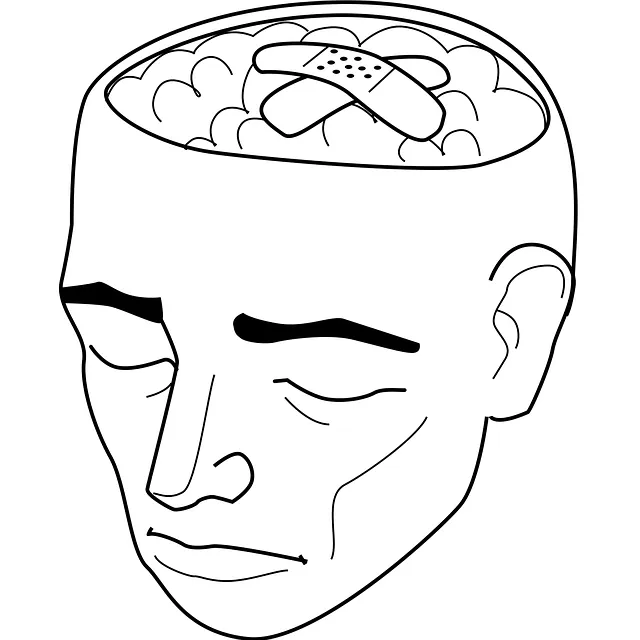Depression, affecting millions globally, is characterized by persistent sadness and various symptoms. Longmont Kaiser Permanente Mental Health Access Center identifies risk factors including genetics and lifestyle. They offer proactive measures like podcasts, self-care routines, physical activity, balanced diet, mindfulness, and stress management techniques to enhance mental well-being. Their Community Outreach Program and therapy options, including CBT and Stress Management Workshops, provide tailored support for depression prevention and management.
Depression is a common yet serious condition affecting millions. If you or someone you know is battling depression, know that help is available at the Longmont Kaiser Permanente Mental Health Access Center. This comprehensive guide explores effective prevention strategies, focusing on understanding the signs and risk factors of depression. We delve into lifestyle changes proven to boost mental well-being and highlight various professional support options, including therapy, to empower you in managing and overcoming this challenge.
- Understanding Depression: Signs and Risk Factors
- Lifestyle Changes for Better Mental Well-being
- Professional Support and Therapy Options
Understanding Depression: Signs and Risk Factors

Depression is a complex mental health condition that impacts millions worldwide. Understanding it involves recognizing both its signs and risk factors. According to Longmont Kaiser Permanente Mental Health Access Center, symptoms can include persistent feelings of sadness or emptiness, loss of interest in activities once enjoyed, changes in appetite and sleep patterns, fatigue, difficulty concentrating, and thoughts of death or suicide.
Several factors can increase the risk of developing depression, including genetics, past traumatic experiences, chronic illnesses, substance abuse, and social isolation. The Longmont Kaiser Permanente Mental Health Access Center recommends proactive measures to foster mental wellness through initiatives like the Mental Wellness Podcast Series Production, which offers valuable insights and support. Additionally, Self-Care Routine Development for Better Mental Health plays a pivotal role in managing stress, a key risk factor. Effective stress management techniques, integrated into daily routines, can significantly contribute to mitigating depression’s onset.
Lifestyle Changes for Better Mental Well-being

Making lifestyle changes can significantly impact and improve mental well-being, as supported by the experts at the Longmont Kaiser Permanente Mental Health Access Center. Incorporating regular physical activity into your routine is a powerful tool in the fight against depression. Exercise releases endorphins, which are natural mood lifters, and promotes better sleep. A balanced diet also plays a crucial role; ensuring you fuel your body with nutritious foods can improve energy levels and overall mood.
Additionally, practicing mindfulness and stress management techniques like meditation or yoga can help regulate emotions and create a sense of calm. The Community Outreach Program Implementation by Kaiser Permanente offers valuable resources and support for those seeking to adopt healthier habits. By prioritizing self-care and attending to your emotional regulation, you can build resilience against depression and enhance your overall quality of life.
Professional Support and Therapy Options

Many individuals struggling with depression find immense benefit from professional support and therapy options available through centers like the Longmont Kaiser Permanente Mental Health Access Center. These specialized facilities offer a range of services tailored to address the unique needs of each patient. Cognitive Behavioral Therapy (CBT), for instance, is a widely recognized and effective approach that helps individuals identify and change negative thought patterns contributing to depression.
Additionally, the center provides Social Skills Training, which equips people with essential coping mechanisms and strategies for improving relationships and social interactions. Stress Management Workshops organized by the center teach evidence-based techniques to help individuals navigate life’s challenges more effectively. These comprehensive therapy options, coupled with a supportive environment, can significantly contribute to preventing and managing depression, ultimately enhancing overall well-being.
Depression is a serious yet treatable condition, and arming yourself with prevention strategies can be a powerful first step. By recognizing signs early and adopting lifestyle changes like regular exercise and mindfulness practices, as supported by the resources available at the Longmont Kaiser Permanente mental health access center, individuals can significantly reduce risk factors. Additionally, seeking professional support through therapy ensures personalized guidance and coping mechanisms tailored to individual needs. Remember, proactive measures can lead to improved mental well-being and a more vibrant life.






